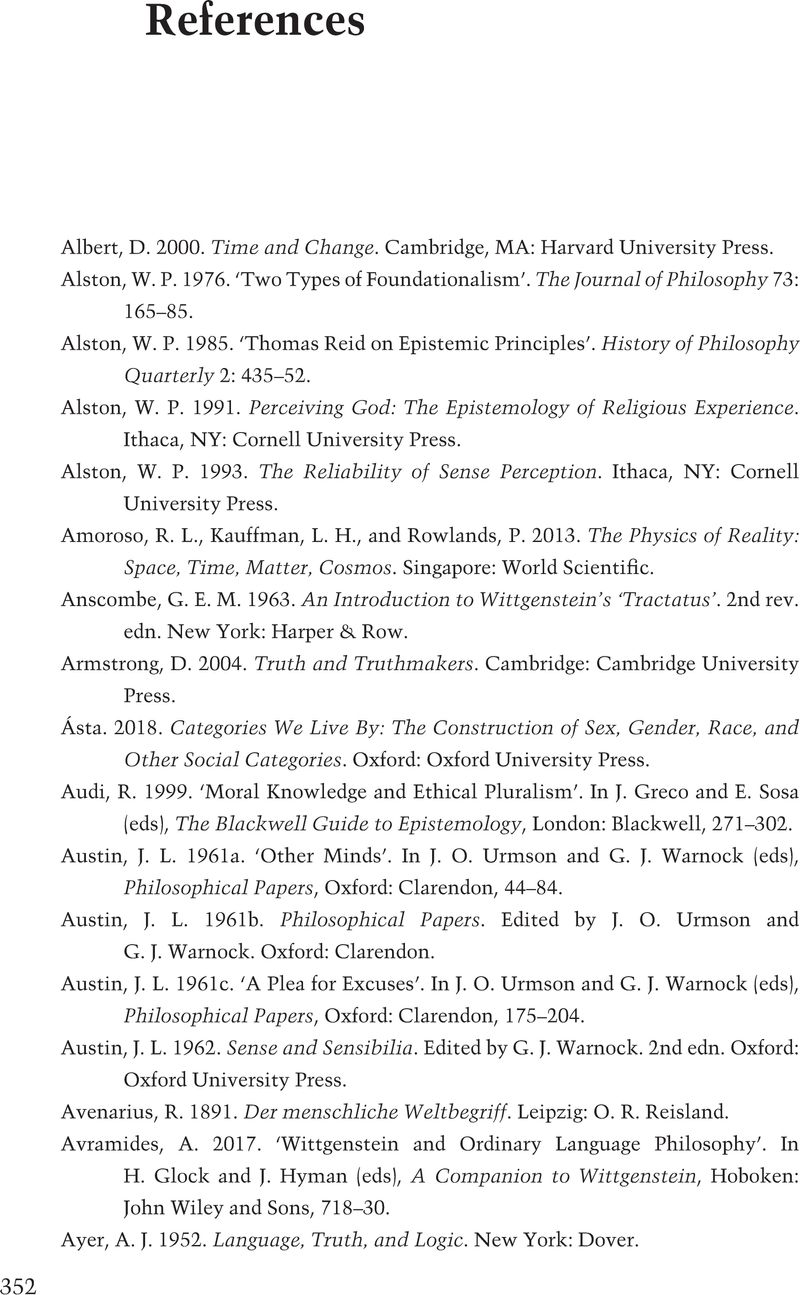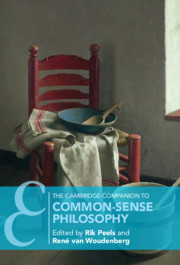Book contents
- The Cambridge Companion to Common-Sense Philosophy
- Other Volumes in the Series of Cambridge Companions
- The Cambridge Companion to Common-Sense Philosophy
- Copyright page
- Contents
- Contributors
- Introduction: Why Common Sense Matters
- Part I
- Part II
- References
- Index
- Other Volumes in the Series of Cambridge Companions
- References
References
Published online by Cambridge University Press: 06 November 2020
- The Cambridge Companion to Common-Sense Philosophy
- Other Volumes in the Series of Cambridge Companions
- The Cambridge Companion to Common-Sense Philosophy
- Copyright page
- Contents
- Contributors
- Introduction: Why Common Sense Matters
- Part I
- Part II
- References
- Index
- Other Volumes in the Series of Cambridge Companions
- References
Summary

- Type
- Chapter
- Information
- The Cambridge Companion to Common-Sense Philosophy , pp. 352 - 372Publisher: Cambridge University PressPrint publication year: 2020



